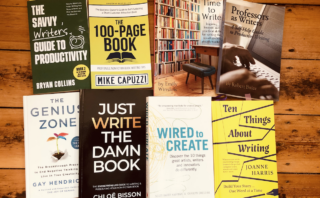Photo by Everton Vila on Unsplash
You don’t have to say something completely new. Just say something that feels true — in a way that people can hear.
“You find a way to make other people feel what you feel, or what you felt… If it makes you feel something, or notice something, or move through the world differently, it matters.” — Heather Havrilesky
Have you ever had a moment where you felt a deep connection with your audience? For example, you said something to a client that tipped the needle for them. Or you received feedback on your article from a stranger who finally understood something vital about themselves?
These moments are magic. And it can be hard to pinpoint what makes that magic happen.
In fact, I’ve always wondered why some of my thoughts resonate and others go right into the void. For example, for some of my articles (How to Avoid December Burnout and Burnout Didn’t Happen To Me, It Happened For Me) I received countless comments and private messages from people feeling exactly the same way.
But also: Some of my other articles are read by 11 people (ouch!).
After analyzing my coaching notes, audience feedback, and article comments, I’ve found a method that’s simple and works when you get it right (I don’t always get it right).
I call it the “8-You-Me” tool because it:
- helps you to think about what your audience craves
- nudges you to see your inner pain and courage
- brings you and your audience on the same frequency (I’ll explain)
When you can find that deep, vulnerable, and essentially human thread from your fear to their fear, from your courage to their courage, you can create content that connects.
Stop chasing new topics and original ideas.
You don’t have to say something completely new. Just say something that feels true — in a way that people can hear.
The 8-You-Me tool gives you 2×4 questions to figure out what that is. Use these questions to create a content strategy, write a book, build a coaching program, or create a great webinar, podcast, or speech that resonates.
Questions about your audience — the “you” perspective
“If we look closely, we see in stories a path we can take to live a more meaningful life.” — Donald Miller, Hero on a Mission
The first four questions are all about your audience (“you” = the audience). That’s the easy part. Empathize with your audience and imagine what matters to them. Care for them and feel with them.
- Question 1: For which people is your nurturing, support, or product an absolute ‘must-have’? Rather than marketing demographics, think about one person who is facing something difficult, or who has specific hopes and dreams. What do they need to hear right now?
- Question 2: What fears, worries, concerns, or challenges does this person face? What limiting beliefs do they have? How does it feel for them to wake up in the morning and be stuck?
- Question 3: What is the one, simple but true thing that this person must understand before they can move on? They may not see it right now, but you know that this is vital. What is it? How harsh is that thing they need to hear?
- Question 4: What skills and victories does that person already have? What can they build on to get the courage to make the first step? Everyone has overcome something in the past — how can you help them see their inner strength when they cannot?
For example, while I’m writing this article, I’m thinking of one of my coaching clients — a woman in a university leadership role, who knows all the mindfulness tools and still burns out. She is hard on herself and ambitious, but also honest and vulnerable when we speak. She has worked her way through life to build an amazing family and job position — so she knows, deep down, that she can do everything she wants to. All I do is help her see her inner blocks and help her remember how strong she really is. (This is a real client of mine, so I’ve removed certain details).
Questions about your own story — the “me” component
“Stories…ask us to look within and question not who we are in the present, but also who we have the capacity to be.” — Niklesh Shukla, Your Story Matters
What really resonates with your audience, and makes them feel connected to you, is a story that captures who you really are. The next four questions help you take the “me” perspective (that’s you — confusing, right?) where you go deep and find truths within yourself. That’s often the harder part unless you’re a journaling junkie like me who vomits out all their fears every morning. Here are the 4 questions:
- Question 1: Think about the last time you were thoroughly frustrated or felt stuck in your life: What happened? How did you feel — describe it honestly. What was your biggest fear or inner barrier that you had to overcome? Where were you scared but you moved ahead anyways? Write down your story, feelings, and mindset shift with brutal honesty.
- Question 2: Remember a time when you did a courageous pivot (left a job or relationship, or started something new). What did you do or think differently to take the first baby step? Which action steps were so tiny that they felt manageable? Did you have a mantra or person that helped you break through and radically change? And might this be relevant to someone who is not you?
- Question 3: Think about a time in your life when you achieved something that used to feel absolutely impossible. What did you do? How did it feel to take that step? Capture that exhilarating moment to pull your audience into purpose, hopefulness, and optimism—to help them dare to change their life as well.
- Question 4: What is a key skill or capability you want to develop in the next 12 months? What makes you care about that skill so much? Might this be something your audience will need as well?
For example, let’s talk about me, Nicole Janz, the coach, and author of this article. I quit my job as a university lecturer two years ago, after years of agony, commuting, not seeing my kids enough, and hating the toxic environment. I could only quit because a) I burned out and got panic attacks, and b) I developed trust that I can build a new life as an entrepreneur in baby steps. Yes, I judged myself for not “making it” in academia, until I realized that I can mentor and coach others outside of that container and on my own terms. By getting a coach myself, I learned to see how harsh I am to myself, but I also remembered my inner strength. (This is the real me — do you notice how close I am to the client I described above? People are drawn to my coaching and writing when I’m brutally honest about my failures and successes, so they tend to be similar to me in their “inner setup”.)
Yes, it takes some time to figure out these answers.
It’s uncomfortable to go deep and re-live your thoughts and feelings in difficult moments of your life. Do take a breath when you need it, and allow yourself the space to be a real, vulnerable human being rather than a marketing machine.
Trust that your audience will always know when your content or message is shallow or clickbait-y.
They will also know and feel when you give them truths that come from deep within and are relevant to them. That’s the secret sauce, the thread from the “me” to the “you”, or the frequency you both share (if you’re spiritually inclined).
With the 8-You-Me tool, your audience will start to listen and ask for more.





